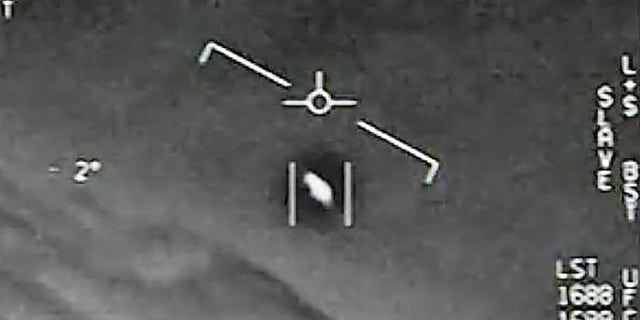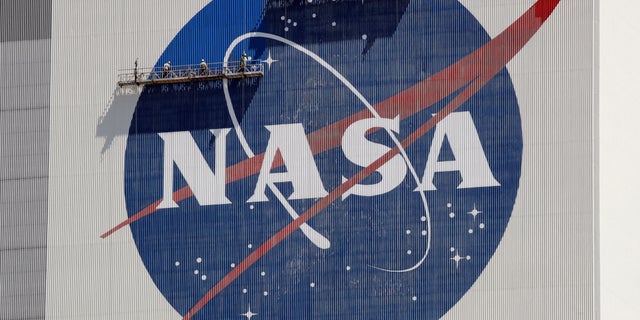NEWYou can now listen to Fox News articles!
NASA announced Thursday that it is assembling a team to study unidentified aerial phenomena, more popularly known as UFOs.
“Part of our task at NASA, given to us by Congress, is not only to do fundamental research in the skies and so forth, but also to find life elsewhere,” Thomas Zurbuchen, the associate administrator for science at NASA, said at a news conference on Thursday.
While UFOs have fascinated humanity for centuries, if not millennia, they have come under increased interest recently following the release of a report by the Director of National Intelligence on 144 sightings.
The Department of Defense recently released images of this UFO, a glowing green triangle in the night sky.
(Department of Defense)
Some of those sightings featured objects with “unusual UAP movement patterns or flight characteristics,” such as the ability to “remain stationary in winds aloft, move against the wind, maneuver abruptly, or move at considerable speed, without discernable means of propulsion.”
Only one of the sightings, a deflating balloon, could be explained.
NASA noted Thursday that there is currently “no evidence UAPs are extra-terrestrial in origin.”
Congress also held a hearing on UFOs for the first time in five decades last month and the Pentagon recently declassified photos and video of UFOs, including glowing green triangles in the night sky.

Government agencies have increasingly been studying UFOs in recent years. This is a still image from a US military aircraft camera.
(Department of Defense)
UFOs have long been associated with conspiracy theories, flying saucers, and tinfoil hats, but Zurbuchen said he thinks NASA’s study will be widely appreciated by the public.
“There’s many, many examples where people kind of lean forward into a field that is not yet accepted. It’s controversial or has some reputational risks. I do believe in some domains, surely, this will not just be met with utter enthusiasm, but I do believe it’s absolutely necessary,” Zurbuchen said Thursday.

Workers on scaffolding repaint the NASA logo near the top of the Vehicle Assembly Building at the Kennedy Space Center in Cape Canaveral, Fla., Wednesday, May 20, 2020.
(AP Photo/John Raoux, File)
The team will be led by David Spergel, the former chair of the astrophysics department at Princeton University and the current president of the Simons Foundation in New York City.
CLICK HERE TO GET THE FOX NEWS APP
“Given the paucity of observations, our first task is simply to gather the most robust set of data that we can,” Spergel said Thursday.
“We will be identifying what data – from civilians, government, non-profits, companies – exists, what else we should try to collect, and how to best analyze it.”